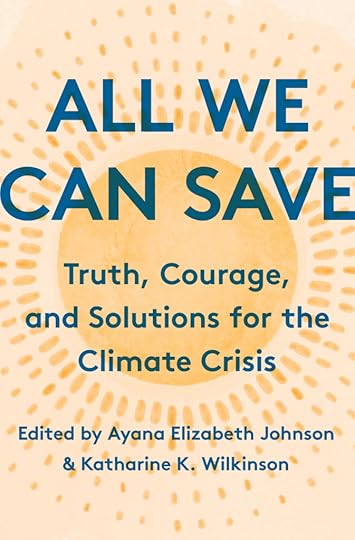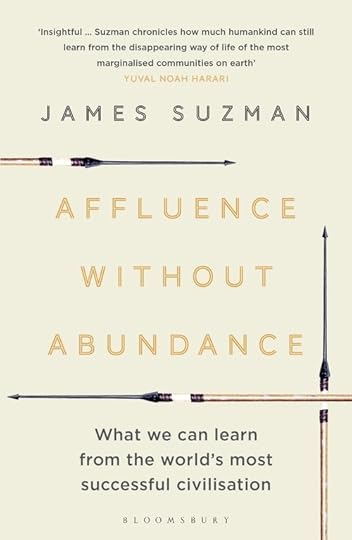Jeremy Williams's Blog, page 99
January 9, 2021
What we learned this week
A striking climate change conundrum has emerged in Namibia, where drought threatens the survival of 200 elephants. The government’s solution? Sell the elephants.
My wife, who is a BBC radio journalist, recorded a special programme on ‘earth heroes’ in our local area. It features activists, inventors, entrepreneurs and more, and you can listen back here.
People have been talking about geothermal power from Cornwall for decades and the potential has never been properly tapped, so it’s grea...
January 8, 2021
A home for all seasons
As the atmosphere warms, weather is becoming more extreme. Warmer air holds more moisture and leads to more intense rainstorms. This means more flooding. A glance at the ten most expensive natural disasters of 2020, which I mentioned yesterday, shows the impact that flooding is already having around the world.
When an area floods, it raises all kinds of questions – will it happen again? What can be done to stop it? Do we repair and stay here in a place that is at risk? Or is it better to mo...
January 7, 2021
The front lines of climate disaster in 2020
A lot happened in the world in 2020, and climate change didn’t pause while the world’s attention has been on the Coronavirus pandemic. But which areas of the world have been most affected by climate change in 2020?
There are various ways to answer that question. One of them is to look at the most expensive natural disasters – the ones that caused the highest measurable amounts of damage. Christian Aid released a report at the end of December that gave us a top ten. They are as follows:
Atl...
January 6, 2021
Can we imagine a carbon neutral NHS?
When Britain announced its net zero carbon by 2050 target, it included everybody. The whole country would have to reach net zero, and that includes the National Health Service. But when the NHS went away and examined their own role, they decided to be more ambitious, and announced that they would aim to be carbon neutral by 2040.
It’s the first national health service in the world to set a zero carbon target, and it will play a significant role. The NHS is the biggest employer in Britain, on...
January 5, 2021
The church forests of Ethiopia
The church in Ethiopia is ancient, and has many traditions that have evolved separately from wider Christianity. One that I discovered recently is the tradition of the church forest, which is explored beautifully in this short documentary by Jeremy Seifert.
In some places trees have been cleared for agriculture, leaving the church forests as little oases of green. It is here that biodiversity is being preserved, and from here that the forest can potentially be extended and the landscap...
January 4, 2021
Book review: All We Can Save

All We Can Save: Truth, Courage, and Solutions for the Climate Crisis is one of the top five books that I read in 2020. It’s taken me a while to get round to reviewing it, partly because I’ve been waiting on news of a UK release, but mainly because it’s taken me a while to read it. This is a book that you don’t so much read as one you spend time with.
The book is edited by Ayana Elizabeth Johnson, a marine biologist and climate campaigner, and Katherine K Wilkinson, the lead writer on th...
December 31, 2020
My books of 2020
Every year I like to look back over what I’ve read and make some recommendations. Here are five that stand out from 2020, and you’ll find them all in a list at Earthbound Books. (Here for US readers)

Affluence Without Abundance, James Suzman
An anthropological study of the the Ju/’hoansi people of Botswana, better known as the Bushmen. Until their way of life was destroyed by colonialism, war and prejudice, it carried on more or less unchanged in 150,000 years. “If the ultimate measur...
December 23, 2020
The climate solutions map
This year I’ve been trying to broaden the scope of the stories I share on the blog. I have an ongoing project to see if I can find a story from every country in the world, and you can see progress here. I also wanted to see what areas of the world are over-represented and under-represented, so I made a map.
These are all positive stories, so it’s a map of climate solutions. Each point on the map is a blog post, covering buildings, energy, food, transport and so on. It’s a different way to bro...
December 22, 2020
Steps towards animal free meat
Meat eating is a conversation that comes up a lot in our family. We’re flexitarian in that we haven’t ruled out all meat and dairy, but I cook vegan by default. My daughter, who is seven and who I suspect speaks for millions, recently summed up her position with the question “can’t we just be vegans who sometimes eat chorizo?”
The conversation has gone another round recently because we’re at home over Christmas. We’ve got full control over the menu, possibly for the first time. In debating th...
December 21, 2020
Book review: Making Climate Policy Work
Making Climate Policy Work, by Danny Cullenward and David G Victor, could have been more specifically named, because it’s about a particular form of climate policy: carbon markets. I’d have called it Making Carbon Markets Work.

Market based climate solutions, such as cap-and-trade systems, are enduringly popular. By pricing carbon and creating a market for emissions rights, you incentivise emissions cuts without prescribing exactly how to do it. The market can then find the cheapest way t...



